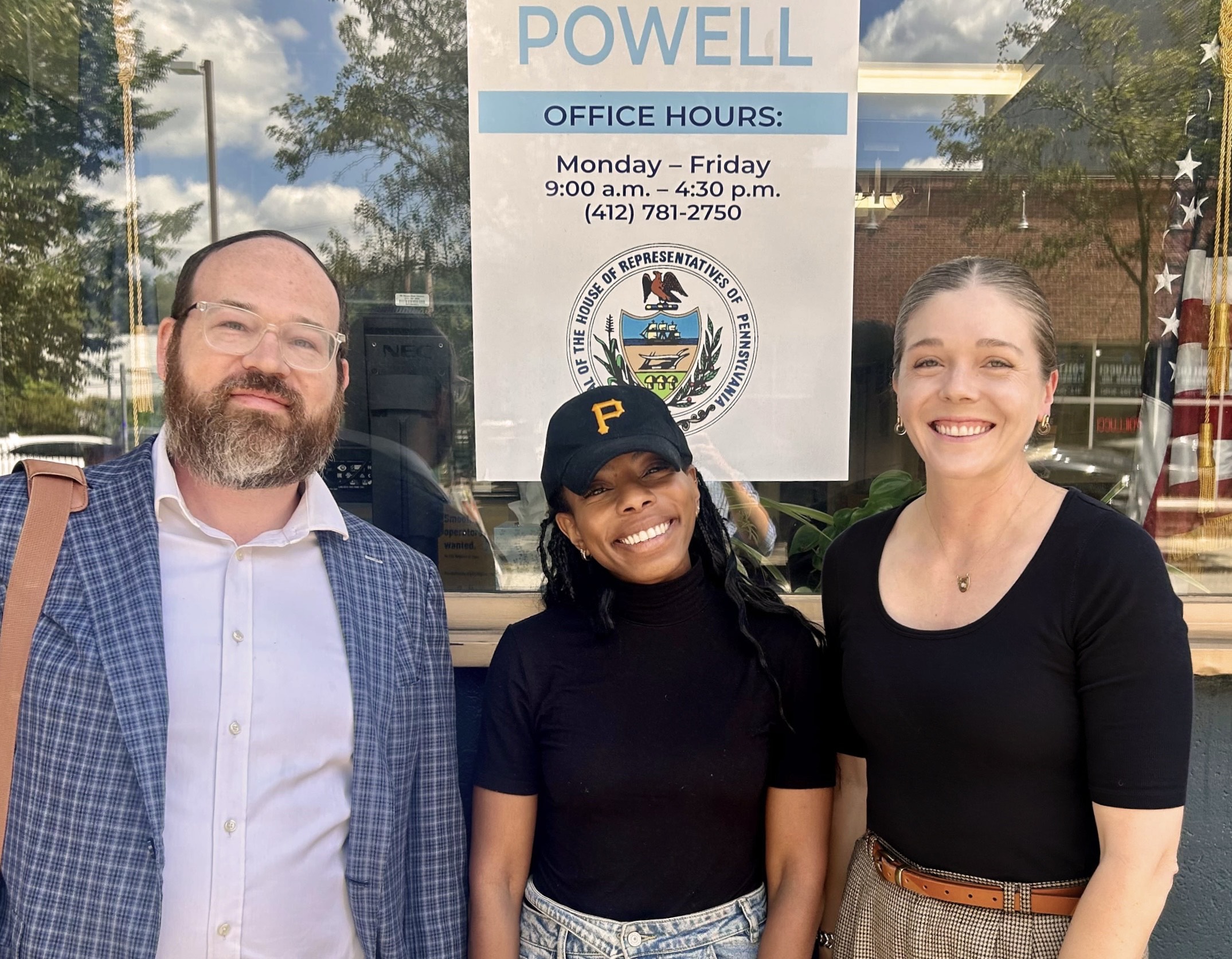Requests for Appointments Closes August 6th | Appointments Scheduled between August 1 - August 31, 2025

District Days is AIA Pennsylvania’s annual grassroots advocacy event and an opportunity to mobilize the membership to meet with our state’s legislators to establish architects as a resource to address the challenges facing their district and the state. It’s also an opportunity to introduce and remind lawmakers of architects’ contributions and expertise throughout their districts and beyond.
The primary goal of the District Days meetings is to build relationships with legislators through discussions around work and life in the district. These relationships are critical to furthering the profession and AIA Pennsylvania’s standing as a go-to resource for our elected officials to position us for better outcomes when we call on them to support the architects’ position throughout the legislative session.
Steps for Advocacy Success
Here’s a step-by-step review of the District Days pre-meeting action items that will set you up for success.
1. Identify Your Legislators
Identify your state legislators (Senator and Representative) by inputting your home address in the “Find Your Legislator” feature. You will be asked to identify your legislators at registration.
2. Register with Your Availability
We encourage you to meet in person in your legislators’ district office or host a “take your legislator to work” visit. Register yourself or your office* with your preferences and availability for August by Friday, July 25th, so we can get your meetings on the books.
3. Look for the email to join the District Days Primer
We will host a preparatory webinar date to be announced to cover a step-by-step roadmap for your meetings. On-demand replay access will be made available to those that cannot attend. All registered participants will receive the link to the webinar and a calendar invitation in late July.
4. Review the Blueprint
Review the District Days “Blueprint” to participants, covering step-by-step guidance for in-meeting, post-meeting, and some helpful dos and don’ts.
5. Schedule a Pre-Meeting (if applicable)
Hosting your legislator(s) in your office? Do some reconnaissance to determine if your colleagues are constituents and invite them to participate in the visit/meeting. If you are meeting with your legislator in a group or hosting them in your office, schedule a pre-meeting with all participants/colleagues to adapt the blueprint to work for your group.
*If you are a Principal or Firm Leader, consider hosting your legislator(s) at your office. Legislators are elected to serve you based on your residential address. Suppose your legislator(s)’ territory does not include your firm’s office. In that case, we will look at several factors before extending the invite. A firm visit will allow your legislator to see firsthand how your work impacts clients and communities in their district, throughout the Commonwealth, and beyond.
No Time to Advocate? Donate!

As part of or in place of your District Days participation, the Pennsylvania Architects Political Action Committee (ArchPAC) needs your support!
The ArchPAC relies on members’ voluntary donations to bolster the profession’s interests and influence.Less than 2% of the membership has contributed this year.
National benchmarks for associations our size average 20% member participation. Your donation, at any amount, will help us reach our goal of 10% member participation.
Contributions to Pennsylvania Architects PAC are not tax deductible for federal income tax purposes. Contributions to the Pennsylvania Architects PAC are for political purposes. All contributions to the Pennsylvania Architects PAC are voluntary. You may refuse to contribute without reprisal. The proposed contribution amounts are suggestions; you may choose to contribute more or less, or not at all. AIA Pennsylvania will not favor or disadvantage anyone by reason of the amount of their contribution or their decision not to contribute. State law requires political committees to report the name, address, occupation and name of employer for each individual whose contributions aggregate in excess of $250 in a calendar year.
